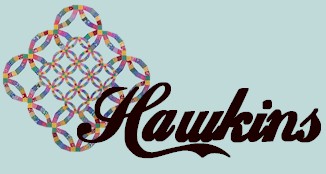|
John and Maude Francis de Montacute
John Montacute was born in 1350. He was the third Earl of Salisbury, knighted in France during the Hundred Year War in1369, went on an expedition to Prussia in 1391, was commander in Ireland under Richard II in 1394-1395, prominent supporter of the lollards (a pre-Lutheran reaction to church corruption); member of king's council, advocate of an end to the 100 years war and thus unpopular; favorite of king Richard II and played a role in his marriage to French princess Isabella; and deputy-marshal of England 1398. John was also quite into poetry and literature and you can find his name on lists of late fourteenth and fifteenth centuries.
John held considerable property (actually, he was probably one of the weathiest men in England). A list of the Manors and Hundreds held at his death in 1400 (from Chris Given-Wilson): MANORS: Knowle, Shepton Montague, Yarlington, Charlton Horethorne, Henstridge, Goathill, Chedzoy, Donyatt, Canford Magna, Poole, West Lulworth, Puddletown, Amesbury, Winterbourne Earls, Winterbourne Stoke, Pyworthy, Oakford, Clyst St. Mary, Stokenham, Chillington, Noss Mayo, Yealmpton, and HUNDREDS (a subdivision of some English counties): Coleridge, Cogdean, Amesbury, Alderbury.
John was despised by the English clergy because of his pro-French views and his fervent lollardism. The Lollards were political, socialistic and religious agitors. They did not believe in worshiping images or relics, the hierarchy, papal authority, celebration of mass, religious decoration, war, capital punishment, taking pilgrimages to tombs, prayers for the dead, the riches and secular employments of the clergy, or celibacy. They also did not believe in confession as it 'exalts the pride of the clergy' and gives opportunity of undue influence.
In 1395 certain Lollard members of the Privy Council, finding themselves unable to influence their royal master in favor of their co-religionists, took advantage of Richard's absences in Ireland to lay their opinions before Parliament. These articles of Lollard belief were drawn up by Stury, Montagu, and their friends, and solemnly presented to Parliament, while other copies were nailed to the door of St. Paul's for the benefit of the citizens.
With Richard II in Ireland, 1399, John attempted to raise troops to counter rising of Duke of Lancaster, troops deserted, Lancaster became Henry IV. Upon accession of Henry IV he was challenged to combat over his complicity in the death of Gloucester (and thereby escaped execution); confined to the Tower, attempted to form a plot to kill Henry at the jousts, the plot was discovered, the conspirators fled to Wales and were captured and beheaded by a mob; head sent to the King and set on London Bridge.
The title earl of Salisbury was lost to the Montacute's when John was convicted of treason in 1400.
Reference:
Montaguemillennium.com
|







